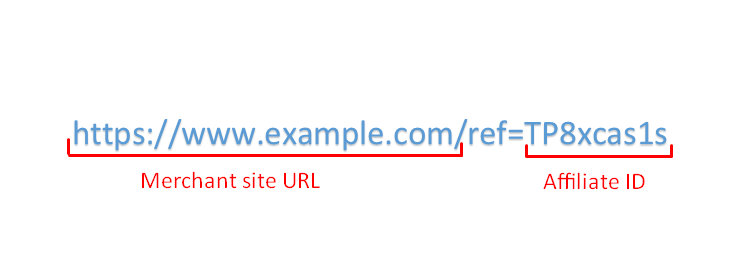What Are Affiliate Links And How Are These Links Different?
What Are Affiliate Links And How Are These Links Different?
If you want to tell people about a brand or product and earn from your referrals, signing up for the affiliate marketing program of the brand or merchant is the best way to do so. Once you are approved for an affiliate program, you will be provided with a unique affiliate tracking link.
An affiliate link is just like any other electronic link or hyperlink, except for the fact that a link of this type is used by a merchant or an affiliate tracking system to record the referral traffic sent to a merchant’s website from an affiliate website.
If you have ever done online shopping, chances are there that you have made a purchase by clicking on an affiliate link placed by some affiliate marketer without even knowing that you actually clicked on an affiliate link. Yes, it’s almost impossible for a regular shopper or an average web user to tell an affiliate link apart from an editorial link.
How Does An Affiliate Link Differ From An Editorial Link?

Hyperlinks connect different online pages and resources so that web users can find relevant content and read more about a certain topic by visiting thematically or contextually related webpages.
While editorial or contextual links help you enrich and supplement your content, it also boosts the search engine friendliness of your content. However, the role of an affiliate link is completely different from that of an editorial link.
An affiliate link looks like just like any other hyperlink, and while it essentially does the same thing – connecting web resources, it also serves a very different purpose. It passes traffic to particular merchant websites and product pages that eventually drive sales and revenue.
How Does An Affiliate Link Look Like?
An affiliate link typically looks like this:

As you can see, there’s a merchant/vendor URL that is paired with an extension, which is generally an alphanumeric extension attached to the main URL of the vendor or merchant. The later part of the URL is your unique affiliate ID.
Why Affiliate Links Are So Important?
Since affiliate marketing is based on the revenue-sharing concept and affiliate marketers are rewarded specific dollar amounts or a percentage value of the revenue they generate with their efforts, it is important that affiliate referrals be tracked with precision.
Irrespective of the revenue sharing model a merchant embraces, the affiliate links are of paramount importance.
This is because an affiliate link does not only comprise of the merchant’s website link, but it also contains a unique affiliate ID, which helps the vendor or merchant to determine who gets the credit for a sale, or an action such as the visitor downloading an e-book or filling out a contact form.
How Should You Use An Affiliate Link?
Right after signing up for an affiliate program and getting the go-ahead from the merchant, you will receive a unique affiliate tracking link. You can place the affiliate tracking link in your product reviews. You can also share the link via your social media channels, Facebook, Twitter, YouTube or any other social media channel. If your followers make a purchase or take an action by clicking your affiliate link, you will be eligible for a commission.
Although affiliate links are meant for tracking referrals, you can use these links strategically to reap SEO (Search Engine Optimization) advantages. You can add texts to affiliate links and make the links user-friendly to get the edge.
Whatever you do, always keep the end-user in your mind while producing content or placing links on your website or blog. It’s the humans who will click on your affiliate links, and not search bots. Good luck!



